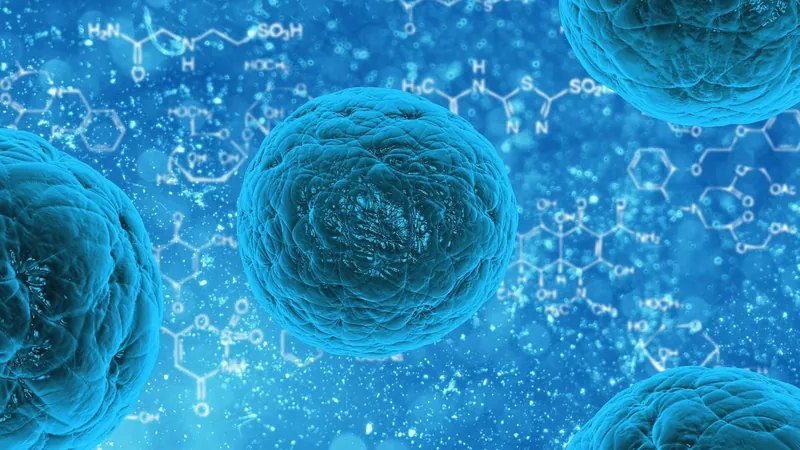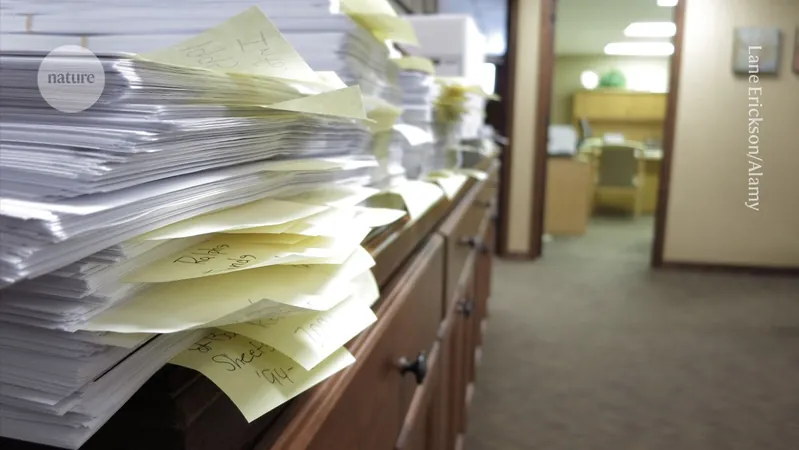
Unlocking the Mystery of Cellular Recycling: How Autophagy Dictates Cell Health
2025-09-04
Author: Ming
The Power of Autophagy: Nature's Recycling System
Autophagy, Greek for "self-eating," is a vital process within our cells that ensures their longevity. This remarkable mechanism not only recycles discarded or damaged components but also acts as a key player in our immune defense, kicking into high gear during times of stress such as starvation or infection. It removes harmful invaders like bacteria and viruses, keeping our cells healthy and resilient.
Types of Autophagy: The Selective and the Non-Selective
Autophagy isn't a one-size-fits-all solution. Scientists differentiate it into two categories: non-selective autophagy, which indiscriminately clears out cellular debris, and selective autophagy, which precisely targets damaged organelles, misfolded proteins, and pathogens. Each type is activated by various physiological stresses, from nutrient shortages to toxic exposures.
A Double-Edged Sword: The Risks of Dysregulation
While autophagy is crucial for cellular health, its malfunction can lead to severe health issues, including cancer and neurodegenerative diseases. Understanding how this process is regulated is paramount for developing novel therapeutic strategies.
New Breakthroughs in Autophagy Research
Researchers from the University of Ottawa's Faculty of Medicine have made groundbreaking strides in the understanding of autophagy. In a recent study published in the Journal of Cell Biology, they formulated a sophisticated workflow that highlights new signaling mechanisms responsible for autophagy in response to various stressors linked to diseases.
By identifying stress-specific regulators of autophagy, the team has set the stage for innovative approaches that bridge the gap between laboratory research and real-world medical applications.
A Closer Look at Cellular Cargo Management
Recent findings indicate that many diseases related to defective autophagy arise from poor management of cellular materials. For instance, in neurodegenerative diseases, clumps of proteins accumulate, while malfunctioning mitochondria are a hallmark of cancer. This highlights the necessity for precisely targeting cellular debris to prevent disease and maintain proper functioning.
Harnessing Gene-Editing Technology for Better Insights
Dr. Maxime Rousseaux and Dr. Ryan Russell from the University of Ottawa leveraged advanced gene-editing techniques to conduct a comparative analysis of pathways regulating cellular waste. Their goal? To deepen scientific understanding and create new pathways for treatment.


 Brasil (PT)
Brasil (PT)
 Canada (EN)
Canada (EN)
 Chile (ES)
Chile (ES)
 Česko (CS)
Česko (CS)
 대한민국 (KO)
대한민국 (KO)
 España (ES)
España (ES)
 France (FR)
France (FR)
 Hong Kong (EN)
Hong Kong (EN)
 Italia (IT)
Italia (IT)
 日本 (JA)
日本 (JA)
 Magyarország (HU)
Magyarország (HU)
 Norge (NO)
Norge (NO)
 Polska (PL)
Polska (PL)
 Schweiz (DE)
Schweiz (DE)
 Singapore (EN)
Singapore (EN)
 Sverige (SV)
Sverige (SV)
 Suomi (FI)
Suomi (FI)
 Türkiye (TR)
Türkiye (TR)
 الإمارات العربية المتحدة (AR)
الإمارات العربية المتحدة (AR)